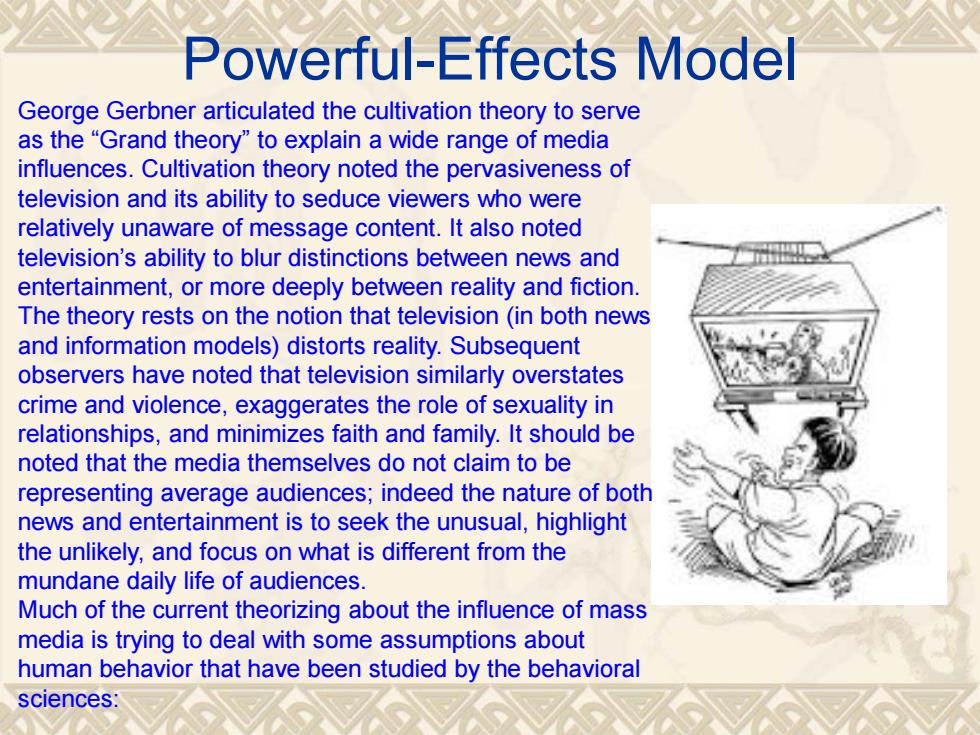正在加载图片...

Powerful-Effects Model George Gerbner articulated the cultivation theory to serve as the "Grand theory"to explain a wide range of media influences.Cultivation theory noted the pervasiveness of television and its ability to seduce viewers who were relatively unaware of message content.It also noted television's ability to blur distinctions between news and entertainment,or more deeply between reality and fiction. The theory rests on the notion that television(in both news and information models)distorts reality.Subsequent observers have noted that television similarly overstates crime and violence,exaggerates the role of sexuality in relationships,and minimizes faith and family.It should be noted that the media themselves do not claim to be representing average audiences;indeed the nature of both news and entertainment is to seek the unusual,highlight the unlikely,and focus on what is different from the mundane daily life of audiences. Much of the current theorizing about the influence of mass media is trying to deal with some assumptions about human behavior that have been studied by the behavioral sciences: Powerful-Effects Model George Gerbner articulated the cultivation theory to serve as the “Grand theory” to explain a wide range of media influences. Cultivation theory noted the pervasiveness of television and its ability to seduce viewers who were relatively unaware of message content. It also noted television’s ability to blur distinctions between news and entertainment, or more deeply between reality and fiction. The theory rests on the notion that television (in both news and information models) distorts reality. Subsequent observers have noted that television similarly overstates crime and violence, exaggerates the role of sexuality in relationships, and minimizes faith and family. It should be noted that the media themselves do not claim to be representing average audiences; indeed the nature of both news and entertainment is to seek the unusual, highlight the unlikely, and focus on what is different from the mundane daily life of audiences. Much of the current theorizing about the influence of mass media is trying to deal with some assumptions about human behavior that have been studied by the behavioral sciences: